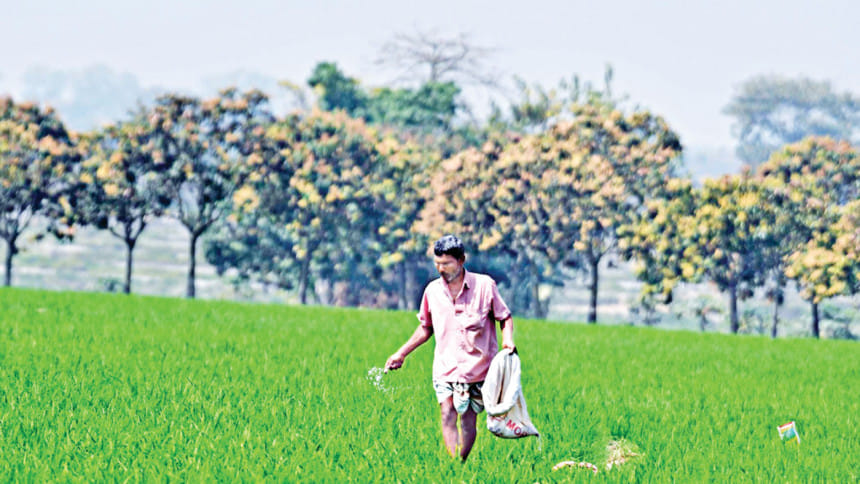Gas crisis shutters four urea factories

Four out of five government-owned urea factories have stopped production due to an acute gas crisis, raising concerns over the availability of enough fertiliser during the ongoing Aman paddy cultivation season and the upcoming Boro paddy season.
About 14 lakh metric tons of urea is typically needed for the Aman and Boro season. But the current stock of urea is around 5 lakh tonnes, enough to meet the farmers' demand for two months, said a top official of the Department of Agricultural Extension preferring anonymity.
"If the stock is not replenished, we might face a urea crisis in December," he said.
Domestic urea production suffered a big blow after one of the two floating LNG terminals in the Bay of Bengal was damaged due to the aftershock of cyclone Remal in May. The terminal, which injects around 500 million cubic feet of gas a day into the national grid, is yet to be operational.
Due to a lack of LNG, 50 million cubic feet of gas has been allocated from Petrobangla for fertiliser factories in Chattogram, said Shafiul Azam, general manager (engineering services) of Karnaphuli Gas Distribution Company.
Of this, 44 million cubic feet of gas is being given to Karnaphuli Fertiliser Company (Kafco), a Japan-Bangladesh joint venture factory located in Chattogram.
Only Ghorashal Palash Fertiliser is getting the required gas supply from the national grid among the five government-owned factories after Shahjalal Fertiliser Company stopped production on September 11 for want of gas.
Production at Ashuganj Fertiliser and Chemical Company has been suspended since January and Chittagong Urea Fertiliser (CUFL) and Jamuna Fertiliser Company since February, according to officials of the Bangladesh Chemical Industries Corporation (BCIC).
Gas supply to fertiliser factories has been stopped by the government decision, said Mohammad Saidur Rahman, chairman of BCIC.
"There is a huge demand for urea fertiliser from December to March. So, we have planned to import the fertiliser as a preliminary preparation. But due to shortage of dollars in banks, we are struggling to open LCs," he said.
As of September 18, foreign currency reserves stood at $19.4 billion, enough to meet four months' imports, according to the Bangladesh Bank's latest published statistics.
On September 1, the concerned department of BCIC sought to open a letter of credit with Sonali Bank for the import of about 3.5 lakh metric tons of urea fertiliser.
Then on September 18, the government procurement advisory committee approved the import of 60,000 tonnes of bulk granular urea fertiliser against two separate proposals from Saudi Arabia and Qatar at a cost of Tk 236 crore.
"Had all the fertiliser factories operational, no import would have been needed at this moment," Rahman said.
The five government-owned factories can produce 20 lakh metric tonnes of urea against the annual demand of around 32 lakh metric tonnes.
The acute gas crisis means the five factories could produce 245,671 metric tons of urea until September 18, said BCIC officials on the condition of anonymity.
Some BCCI officials said a huge amount of foreign currency is being wasted only on fertiliser imports due to the lack of foresight from the government.
It costs Tk 50-55,000 to import a tonne of urea from abroad. If produced in the country, the cost is Tk 32-33,000, they said.

 For all latest news, follow The Daily Star's Google News channel.
For all latest news, follow The Daily Star's Google News channel. 








Comments